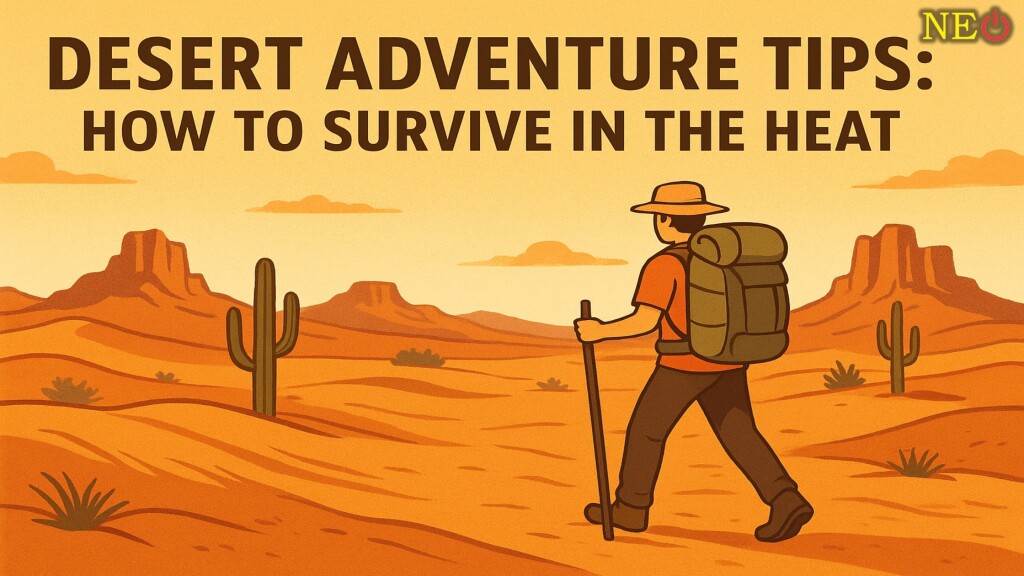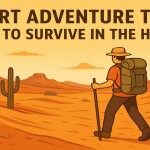Exploring the desert is one of the most thrilling adventures you can experience. The golden dunes, wide horizons, and raw beauty of the desert create memories for a lifetime. But behind its beauty lies extreme heat, scarce water, and unpredictable conditions that can turn dangerous if you are not prepared. To make your desert journey both exciting and safe, here are some essential survival tips.
1. Plan Ahead and Research the Area
Before heading into the desert, study the terrain, climate, and local conditions. Check weather forecasts and know the location of nearby towns, water sources, or emergency facilities. A detailed map, GPS device, or compass is a must—since signals may not always work.
2. Stay Hydrated
Water is your lifeline in the desert. Carry at least 1 gallon (4 liters) of water per person per day. Don’t wait until you’re thirsty—sip regularly to avoid dehydration. Avoid alcohol and caffeine, as they dehydrate your body faster.
3. Dress Smartly
Wear light-colored, loose-fitting clothes to reflect sunlight and allow airflow. A wide-brimmed hat, sunglasses, and a scarf or bandana will protect you from sunburn and heatstroke. Always apply sunscreen with SPF 30+ on exposed skin.
4. Travel During Cooler Hours
Avoid trekking during midday when the sun is at its strongest (10 AM–4 PM). Early morning and late evening are safer and more comfortable times for desert exploration.
5. Know How to Handle Heatstroke
Symptoms of heat exhaustion include dizziness, headache, nausea, and extreme fatigue. If this happens, move to shade, drink small sips of water, and cool your body with a damp cloth. Ignoring these signs can lead to life-threatening heatstroke.
6. Food and Energy
Carry lightweight, non-perishable snacks like nuts, protein bars, and dried fruits. These will keep your energy up without spoiling in the heat. Avoid heavy meals, as they can make you feel sluggish.
7. Navigation and Safety Gear
Bring a reliable compass, GPS, and extra batteries. A whistle, flashlight, first aid kit, and multipurpose knife are essential survival tools. Mark your route to avoid getting lost—desert landscapes can look very similar and disorienting.
8. Protect Your Feet
Walking on hot sand can burn and exhaust you. Wear sturdy boots and moisture-wicking socks to prevent blisters. Gaiters can also keep sand out of your shoes.
9. Respect Desert Wildlife
The desert is home to snakes, scorpions, and insects. Avoid disturbing them and always check your shoes or bedding before use. Keeping a safe distance is the best way to prevent accidents.
10. Emergency Preparedness
Always inform someone about your travel route and expected return time. Carry a fully charged phone with a solar charger, a signal mirror, and a backup communication device if possible.
Final Thoughts
The desert may seem harsh, but with the right preparation, it offers one of the most rewarding adventures of your life. Stay hydrated, travel smart, and respect nature—you’ll not only survive the heat but thrive in it.









